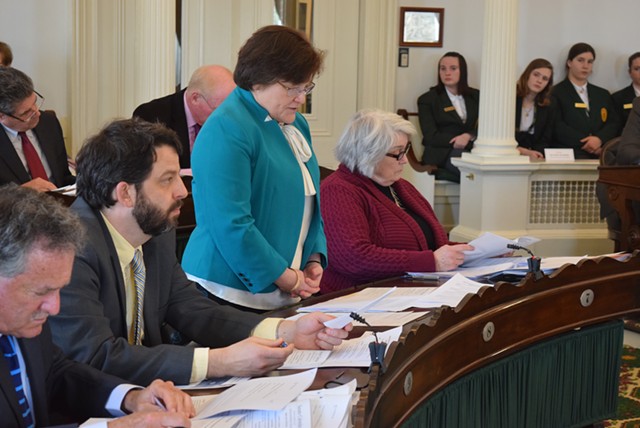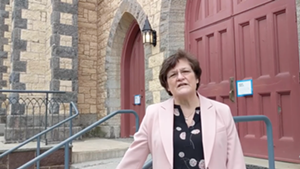
- File: TERRI HALLENBECK
- Sen. Debbie Ingram
The Vermont Senate voted 28-1 Wednesday to approve an amendment to the state constitution that clarifies its ban on slavery.
The
Vermont Constitution currently reads: “no person born in this country, or brought from over sea, ought to be holden by law, to serve any person as a servant, slave or apprentice, after arriving to the age of twenty-one years, unless bound by the person's own consent, after arriving to such age, or bound by law for the payment of debts, damages, fines, costs, or the like.”
The amendment approved by the Senate Wednesday would replace that entire passage with the words: “slavery and indentured servitude in any form are prohibited.”
Wednesday’s sole "no" vote came from Sen. Dick McCormack (D-Windsor), who argued during the Senate debate that the amendment would erase a crucial piece of history that Vermonters are rightly proud of. The state was the first to ban slavery.
“The existing language has no legal power nor would the new language have legal power,” McCormack said, noting that the 13th Amendment to the U.S. Constitution did away with slavery for good. “What it does have is historical power. It’s an artifact like the fossils in the floor of the Statehouse, like the Liberty Bell with its crack. It’s an artifact of history and a point of pride.”
The Vermont League of Cities and Towns began advocating for a change
last year because the current language has some exceptions for indentured servitude.
On Wednesday, Sen. Debbie Ingram (D-Chittenden) deemed McCormack’s argument “grossly insensitive” and emphasized that the idea of slavery isn’t the same for a white state senator as it might be to people of color.
“The ancestors of many black people in this country were ripped from their homes in Africa … chained, thrown into ships like so much cargo and sold,
sold to the highest bidder to work on land owned by someone else,” Ingram said.
She said it would be “a shame” if the Senate opted for the historical value of the existing language above the need to counteract generations of racial injustice.
“We need to be able to use our imaginations to walk in another person’s shoes,” she said, “to have empathy with others. With black people in Vermont specifically.”
Before it can officially become part of the Vermont Constitution, the amendment must pass the House, then pass both chambers again after the 2020 elections.
If it passes all of those steps, the proposed amendment would go to a statewide vote on Election Day 2022. If a majority of voters approve it at that stage, it would become effective immediately.
















Comments (9)
Showing 1-9 of 9
Comments are closed.
From 2014-2020, Seven Days allowed readers to comment on all stories posted on our website. While we've appreciated the suggestions and insights, right now Seven Days is prioritizing our core mission — producing high-quality, responsible local journalism — over moderating online debates between readers.
To criticize, correct or praise our reporting, please send us a letter to the editor or send us a tip. We’ll check it out and report the results.
Online comments may return when we have better tech tools for managing them. Thanks for reading.